Chaka Khan
Chaka Khan (born Yvette Marie Stevens on March 23, 1953 in Great Lakes, Illinois) is an American singer best known for her 1984 cover of Prince's "I Feel For You", for her smash hit "I'm Every Woman" and as a member of the funk band Rufus, with whom she recorded the legendary soul record "Ain't Nobody". In her career she has earned many accolades, including eight Grammy awards. Though regarded an R&B singer, she has in fact explored numerous musical genres including funk, disco, jazz, ballads, hip hop, adult contemporary and pop standards.[edit]
Early life
Khan was raised on Chicago's South Side, and at the age of 11 formed her first group, the Crystalettes. While still in high school, she joined the Afro-Arts Theater, a group which toured with Motown great Mary Wells; a few years later, she adopted the African name "Chaka" while working as a volunteer on the Black Panthers' Free Breakfast for Children program. After quitting high school in 1969, Khan joined the group Lyfe, soon exiting to join another dance band, The Babysitters; neither was on the fast track to success, but her fortunes changed when she teamed with ex-American Breed member Kevin Murphy and Andre Fisher to form Rufus.
[edit] Life with Rufus
Debuting in 1973 with a self-titled effort on the ABC label, Rufus was among the pre-eminent funk groups of the decade; distinguished by Khan's dynamic vocals. With the help of Stevie Wonder, Rufus broke into both the pop music and R&B charts in 1974 with the hit "Tell Me Something Good". Throughout the 1970s and early 1980s, the band had a number of R&B hits, including "Tell Me Something Good", "Masterjam", "Sweet Thing", "Do You Love What You Feel?", and "Once You Get Started". The group earned half a dozen gold or platinum albums and two gold singles with "Tell Me Something Good" and "Sweet Thing" before she went solo in 1978.
[edit] Solo Stardom
In 1978, Khan recorded her highly-orchestrated Arif Mardin-produced disco smash hit "I'm Every Woman" (#1 R&B and #21 Pop, and a bigger Pop hit over a decade later for Whitney Houston), from the album Chaka. Chaka proved to be a significant hit on the strength of the single (which was composed by Ashford & Simpson) however, Khan's success was somewhat tempered by her public rivalry with the remaining members of Rufus, to whom she was contractually bound for two more LPs.
As a solo artist, Khan recorded backing vocals for Ry Cooder's 1979 effort "Bop Till You Drop," then cut her sophomore album, 1980's Naughty, a minor hit on the R&B charts, which featured 'Clouds' (also by Ashford & Simpson), 'Move Me No Mountain', and other songs that displayed Chaka's range as a singer. The 'Naughty' album also featured Luther Vandross, Cissy Houston, and a young Whitney Houston singing background vocals.
Her next album, What Cha' Gonna Do for Me ?, was a gold seller and included at least two hit singles on Billboard's R&B Singles chart, including the title song (which topped the R&B chart and made #53 Pop). Chaka's 'Night In Tunisia (The Melody Remains The Same)' is also a timeless classic (featuring Dizzy Gillespie & Herbie Hancock) from the album, which has Chaka hitting 'notes that aren't in the book' (according to her legendary producer Arif Mardin).
In 1982, Warner Brothers released the Arif Mardin produced 'Chaka Khan' album. This album featured the single 'Tearin It Up', as well as Chaka's reading of Michael Jackson's 'Got To Be There'. 'Slow Dancin' (a duet with the late Rick James) was also featured, but her 'Be Bop Medley' won the Diva a Grammy Award, as well as praise from jazz legend Betty Carter, who praised Chaka for her improvisational skills. 'Chaka Khan' was critically acclaimed, but it was not the huge hit that Warner Brothers wanted. The CD edition of 'Chaka Khan' is a rare collector's item because Warner Brothers refuses to release it in the United States. Fans can expect to pay almost $100.00 for mint CDs imported from Japan.
[edit] A jazz experiment
In 1982, Khan recorded Echoes Of An Era, a collection of jazz standards featuring performances from Freddie Hubbard, Joe Henderson, Stanley Clarke, Chick Corea and Lenny White. 1983 saw Khan return to Rufus to record her last contractually obligated album Stompin' At The Savoy: Live. The double album contained live versions of Rufus classics, Khan's solo hits and a handful of newly recorded tracks. One of these was the hit "Ain't Nobody," which returned Khan to the top of the urban and top 40 charts (#22 Pop). To make room for the new studio tracks, Warner Brothers omitted live versions of "Everlasting Love" (which was released on the rare 1983 soundtrack to Night Shift), "The Best Of Your Heart" and "Hollywood".
[edit] Hip hop phenomenon
Her pop career was on shaky ground when she released 1984's I Feel For You, a platinum-seller launched by its title cut, a Grammy-winning, hip hop-based rendition of a fairly obscure Prince album track with a cameo appearance by Stevie Wonder on harmonica and rap by Melle Mel, which launched her recording career back into full gear. Produced by David Foster, the popular ballad "Through The Fire" also reached the R&B top ten, setting a record (since broken) for spending the most consecutive weeks on the Billboard R&B chart, made #60 Pop during a 19-week run on the Hot 100, and crossed over to the adult contemporary chart. "Through The Fire" has since been sampled by Kanye West for his hit single "Through The Wire". Chaka also recorded 'Krush Groove (Can't Stop The Street)' for the movie Krush Groove in 1985.
[edit] 1990s to now
Still, while subsequent LPs like 1986's Destiny and 1988's C.K. kept Khan high on the R&B charts, her standing in pop's mainstream again began to wane, and by the end of the 1980s she had moved to Europe. Not forgotten back in America, in 1990, she won another Grammy for "I'll Be Good To You," a duet with Ray Charles and another #1 R&B and Top 20 Pop hit.
In 1992, Khan released her album The Woman I Am, for which she received a Grammy award for best Rhythm & Blues vocal performance. The album's hit single "Love You All My Lifetime" was penned by German songwriter duo Irmgard Klarmann and Felix Weber and was produced by David Gamson. According to the Chaka's World Website, Khan recorded a follow up album Dare You To Love Me which was to be released in 1995. Warner Brothers shelved the project (although several of the tracks appeared on a career retropsective titled Epiphany: The Very Best of Chaka Khan and soundtracks such as To Wong Foo, Thanks For Everything, Julie Newmar and Waiting to Exhale (singing the standard "My Funny Valentine").
Khan soon left Warner Brothers because of a lack of promotion[citation needed] and after the label had decided to release the Epiphany compilation instead of Dare You To Love Me in its true form[citation needed]. Prince (who also feuded with the company) assisted Khan in leaving Warner Brothers. Khan eventually made a special agreement with "The Artist" (who was then only formerly known as Prince), and recorded her next album on his New Power Generation label.
The Prince-produced Come 2 My House appeared in 1998, and went gold[citation needed] despite little or no promotion. Khan also appeared on new CDs by Prince and Larry Graham for the New Power Generation Label, and toured in support for the projects. In 2001, Khan sang on De La Soul's hit song "All Good?". In 2002 she was an integral part of the documentary about Motown studio musicians The Funk Brothers, Standing In The Shadows Of Motown, which she performed the classic R&B songs "What's Going On?" (she won her 8th Grammy Award for this performance) and the last live song performed in the film, "Ain't No Mountain High Enough" (a duet with Montell Jordan).
In October 2004, Khan released her cover album ClassiKhan by her own label Earth Song Records and Sanctuary Records. An album of standards featuring the London Symphony Orchestra and recorded primarily at Abbey Road Studios in London. The entire album was Produced by Eve Nelson of Nelson-O'Reilly Productions who also conducted the London Symphony Orchestra.
On December 3, 2004, she received an honorary doctorate degree from Berklee College of Music. She is also active in the autism community as she has family members who have been diagnosed. Her EarthSong Entertainment and Chaka Khan Foundation operate from Beverly Hills, California. She continues to record and perform with her distinctive and powerful voice.
[edit] Recent
In early 2006, she signed with Sony BMG's new label Burgundy Records to release her upcoming studio cover album set I-Khan Divas in 2007. Also, Khan, who has recently embraced Christianity, participated in a live all-star gospel concert recording for artist Richard Smallwood's new album Journey: Live In New York. Khan is featured on the song "Oh, How Precious." [1]
On February 11, 2007 Khan headlined and performed at the NARAS 2007 Grammy Award official post party held immediately after the event at the Los Angeles convention center.
[edit] Miscellany
The name "Chaka" comes from the historical figure Chaka Bey.
On her official website, Khan credits singer Karen Clark Sheard with being "the voice that helped me find the Holy Ghost". She performed a live cover of Sheard's "A Secret Place" along with Richard Smallwood on TBN's popular show Praise The Lord in October 2006.
She was only 20 when she joined Rufus.
She showcased her vocal talents as the choir soloist in the 1980 film The Blues Brothers.
Featured on Rick Wakeman's album 1984.
Featured on Stevie Winwood's "Higher Love". Khan sang and produced the background vocals.
According to the 'Chaka's World' website, Chaka was originally scheduled to duet on Tom Browne's hit "Funkin' For Jamaica" and Dennis Edwards' hit "Don't Look Any Further" (which he went on to perform with Siedah Garrett). She also recorded the song "Addicted to Love" with Robert Palmer. Her vocals were later removed after her management refused to allow its release.
Although she sang at both the 2000 Democratic and Republican conventions, Khan says that she is more of a "Democratic-minded person." [2]
Good friends with the Bee Gees.
Recorded the newest version of the Reading Rainbow theme song. Episodes recorded from 2000 bear her version.
Favorite rapper is Busta Rhymes.
Yummy Bingham is her goddaughter.
In an episode of Shooting Stars Khan was named as an artist whose name sounded like an animal noise
[edit] Awards
[edit] Wins
2006 BET Lifetime Achievement Award
To date, she has won eight Grammy Awards:
2002 Best Traditional R&B Vocal Performance - "What's Going On" by Chaka Khan & The Funk Brothers
1992 Best R&B Vocal Performance, Female - "The Woman I Am"
1990 Best R&B Performance By A Duo Or Group With Vocal - "I'll Be Good To You" (with Ray Charles)
1984 Best R&B Vocal Performance, Female - "I Feel For You"
1983 Best R&B Vocal Performance, Female - Chaka Khan
1983 Best R&B Performance By A Duo Or Group With Vocal "Ain't Nobody"
1983 Best Vocal Arrangement For Two Or More Voices - "Be Bop Medley"
1974 Best R&B Vocal Performance By A Duo, Group Or Chorus - "Tell Me Something Good"
She has won four American Music Awards.
[edit] Nominations
She has had 19 Grammy nominations including a recent nomination for "Everyday (Family Reunion)", her collaboration with Yolanda Adams, Gerald Levert, and Carl Thomas from the Madea's Family Reunion movie.[3]
Khan was raised on Chicago's South Side, and at the age of 11 formed her first group, the Crystalettes. While still in high school, she joined the Afro-Arts Theater, a group which toured with Motown great Mary Wells; a few years later, she adopted the African name "Chaka" while working as a volunteer on the Black Panthers' Free Breakfast for Children program. After quitting high school in 1969, Khan joined the group Lyfe, soon exiting to join another dance band, The Babysitters; neither was on the fast track to success, but her fortunes changed when she teamed with ex-American Breed member Kevin Murphy and Andre Fisher to form Rufus.
[edit] Life with Rufus
Debuting in 1973 with a self-titled effort on the ABC label, Rufus was among the pre-eminent funk groups of the decade; distinguished by Khan's dynamic vocals. With the help of Stevie Wonder, Rufus broke into both the pop music and R&B charts in 1974 with the hit "Tell Me Something Good". Throughout the 1970s and early 1980s, the band had a number of R&B hits, including "Tell Me Something Good", "Masterjam", "Sweet Thing", "Do You Love What You Feel?", and "Once You Get Started". The group earned half a dozen gold or platinum albums and two gold singles with "Tell Me Something Good" and "Sweet Thing" before she went solo in 1978.
[edit] Solo Stardom
In 1978, Khan recorded her highly-orchestrated Arif Mardin-produced disco smash hit "I'm Every Woman" (#1 R&B and #21 Pop, and a bigger Pop hit over a decade later for Whitney Houston), from the album Chaka. Chaka proved to be a significant hit on the strength of the single (which was composed by Ashford & Simpson) however, Khan's success was somewhat tempered by her public rivalry with the remaining members of Rufus, to whom she was contractually bound for two more LPs.
As a solo artist, Khan recorded backing vocals for Ry Cooder's 1979 effort "Bop Till You Drop," then cut her sophomore album, 1980's Naughty, a minor hit on the R&B charts, which featured 'Clouds' (also by Ashford & Simpson), 'Move Me No Mountain', and other songs that displayed Chaka's range as a singer. The 'Naughty' album also featured Luther Vandross, Cissy Houston, and a young Whitney Houston singing background vocals.
Her next album, What Cha' Gonna Do for Me ?, was a gold seller and included at least two hit singles on Billboard's R&B Singles chart, including the title song (which topped the R&B chart and made #53 Pop). Chaka's 'Night In Tunisia (The Melody Remains The Same)' is also a timeless classic (featuring Dizzy Gillespie & Herbie Hancock) from the album, which has Chaka hitting 'notes that aren't in the book' (according to her legendary producer Arif Mardin).
In 1982, Warner Brothers released the Arif Mardin produced 'Chaka Khan' album. This album featured the single 'Tearin It Up', as well as Chaka's reading of Michael Jackson's 'Got To Be There'. 'Slow Dancin' (a duet with the late Rick James) was also featured, but her 'Be Bop Medley' won the Diva a Grammy Award, as well as praise from jazz legend Betty Carter, who praised Chaka for her improvisational skills. 'Chaka Khan' was critically acclaimed, but it was not the huge hit that Warner Brothers wanted. The CD edition of 'Chaka Khan' is a rare collector's item because Warner Brothers refuses to release it in the United States. Fans can expect to pay almost $100.00 for mint CDs imported from Japan.
[edit] A jazz experiment
In 1982, Khan recorded Echoes Of An Era, a collection of jazz standards featuring performances from Freddie Hubbard, Joe Henderson, Stanley Clarke, Chick Corea and Lenny White. 1983 saw Khan return to Rufus to record her last contractually obligated album Stompin' At The Savoy: Live. The double album contained live versions of Rufus classics, Khan's solo hits and a handful of newly recorded tracks. One of these was the hit "Ain't Nobody," which returned Khan to the top of the urban and top 40 charts (#22 Pop). To make room for the new studio tracks, Warner Brothers omitted live versions of "Everlasting Love" (which was released on the rare 1983 soundtrack to Night Shift), "The Best Of Your Heart" and "Hollywood".
[edit] Hip hop phenomenon
Her pop career was on shaky ground when she released 1984's I Feel For You, a platinum-seller launched by its title cut, a Grammy-winning, hip hop-based rendition of a fairly obscure Prince album track with a cameo appearance by Stevie Wonder on harmonica and rap by Melle Mel, which launched her recording career back into full gear. Produced by David Foster, the popular ballad "Through The Fire" also reached the R&B top ten, setting a record (since broken) for spending the most consecutive weeks on the Billboard R&B chart, made #60 Pop during a 19-week run on the Hot 100, and crossed over to the adult contemporary chart. "Through The Fire" has since been sampled by Kanye West for his hit single "Through The Wire". Chaka also recorded 'Krush Groove (Can't Stop The Street)' for the movie Krush Groove in 1985.
[edit] 1990s to now
Still, while subsequent LPs like 1986's Destiny and 1988's C.K. kept Khan high on the R&B charts, her standing in pop's mainstream again began to wane, and by the end of the 1980s she had moved to Europe. Not forgotten back in America, in 1990, she won another Grammy for "I'll Be Good To You," a duet with Ray Charles and another #1 R&B and Top 20 Pop hit.
In 1992, Khan released her album The Woman I Am, for which she received a Grammy award for best Rhythm & Blues vocal performance. The album's hit single "Love You All My Lifetime" was penned by German songwriter duo Irmgard Klarmann and Felix Weber and was produced by David Gamson. According to the Chaka's World Website, Khan recorded a follow up album Dare You To Love Me which was to be released in 1995. Warner Brothers shelved the project (although several of the tracks appeared on a career retropsective titled Epiphany: The Very Best of Chaka Khan and soundtracks such as To Wong Foo, Thanks For Everything, Julie Newmar and Waiting to Exhale (singing the standard "My Funny Valentine").
Khan soon left Warner Brothers because of a lack of promotion[citation needed] and after the label had decided to release the Epiphany compilation instead of Dare You To Love Me in its true form[citation needed]. Prince (who also feuded with the company) assisted Khan in leaving Warner Brothers. Khan eventually made a special agreement with "The Artist" (who was then only formerly known as Prince), and recorded her next album on his New Power Generation label.
The Prince-produced Come 2 My House appeared in 1998, and went gold[citation needed] despite little or no promotion. Khan also appeared on new CDs by Prince and Larry Graham for the New Power Generation Label, and toured in support for the projects. In 2001, Khan sang on De La Soul's hit song "All Good?". In 2002 she was an integral part of the documentary about Motown studio musicians The Funk Brothers, Standing In The Shadows Of Motown, which she performed the classic R&B songs "What's Going On?" (she won her 8th Grammy Award for this performance) and the last live song performed in the film, "Ain't No Mountain High Enough" (a duet with Montell Jordan).
In October 2004, Khan released her cover album ClassiKhan by her own label Earth Song Records and Sanctuary Records. An album of standards featuring the London Symphony Orchestra and recorded primarily at Abbey Road Studios in London. The entire album was Produced by Eve Nelson of Nelson-O'Reilly Productions who also conducted the London Symphony Orchestra.
On December 3, 2004, she received an honorary doctorate degree from Berklee College of Music. She is also active in the autism community as she has family members who have been diagnosed. Her EarthSong Entertainment and Chaka Khan Foundation operate from Beverly Hills, California. She continues to record and perform with her distinctive and powerful voice.
[edit] Recent
In early 2006, she signed with Sony BMG's new label Burgundy Records to release her upcoming studio cover album set I-Khan Divas in 2007. Also, Khan, who has recently embraced Christianity, participated in a live all-star gospel concert recording for artist Richard Smallwood's new album Journey: Live In New York. Khan is featured on the song "Oh, How Precious." [1]
On February 11, 2007 Khan headlined and performed at the NARAS 2007 Grammy Award official post party held immediately after the event at the Los Angeles convention center.
[edit] Miscellany
The name "Chaka" comes from the historical figure Chaka Bey.
On her official website, Khan credits singer Karen Clark Sheard with being "the voice that helped me find the Holy Ghost". She performed a live cover of Sheard's "A Secret Place" along with Richard Smallwood on TBN's popular show Praise The Lord in October 2006.
She was only 20 when she joined Rufus.
She showcased her vocal talents as the choir soloist in the 1980 film The Blues Brothers.
Featured on Rick Wakeman's album 1984.
Featured on Stevie Winwood's "Higher Love". Khan sang and produced the background vocals.
According to the 'Chaka's World' website, Chaka was originally scheduled to duet on Tom Browne's hit "Funkin' For Jamaica" and Dennis Edwards' hit "Don't Look Any Further" (which he went on to perform with Siedah Garrett). She also recorded the song "Addicted to Love" with Robert Palmer. Her vocals were later removed after her management refused to allow its release.
Although she sang at both the 2000 Democratic and Republican conventions, Khan says that she is more of a "Democratic-minded person." [2]
Good friends with the Bee Gees.
Recorded the newest version of the Reading Rainbow theme song. Episodes recorded from 2000 bear her version.
Favorite rapper is Busta Rhymes.
Yummy Bingham is her goddaughter.
In an episode of Shooting Stars Khan was named as an artist whose name sounded like an animal noise
[edit] Awards
[edit] Wins
2006 BET Lifetime Achievement Award
To date, she has won eight Grammy Awards:
2002 Best Traditional R&B Vocal Performance - "What's Going On" by Chaka Khan & The Funk Brothers
1992 Best R&B Vocal Performance, Female - "The Woman I Am"
1990 Best R&B Performance By A Duo Or Group With Vocal - "I'll Be Good To You" (with Ray Charles)
1984 Best R&B Vocal Performance, Female - "I Feel For You"
1983 Best R&B Vocal Performance, Female - Chaka Khan
1983 Best R&B Performance By A Duo Or Group With Vocal "Ain't Nobody"
1983 Best Vocal Arrangement For Two Or More Voices - "Be Bop Medley"
1974 Best R&B Vocal Performance By A Duo, Group Or Chorus - "Tell Me Something Good"
She has won four American Music Awards.
[edit] Nominations
She has had 19 Grammy nominations including a recent nomination for "Everyday (Family Reunion)", her collaboration with Yolanda Adams, Gerald Levert, and Carl Thomas from the Madea's Family Reunion movie.[3]















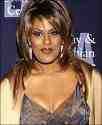

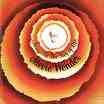
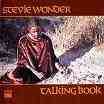

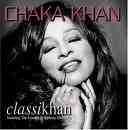
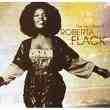

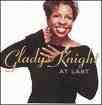
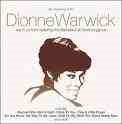
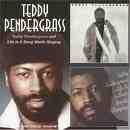
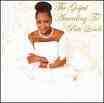




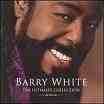

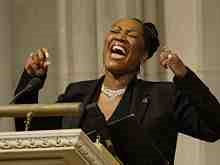




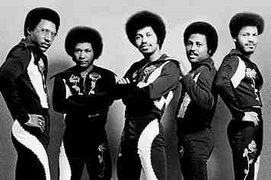
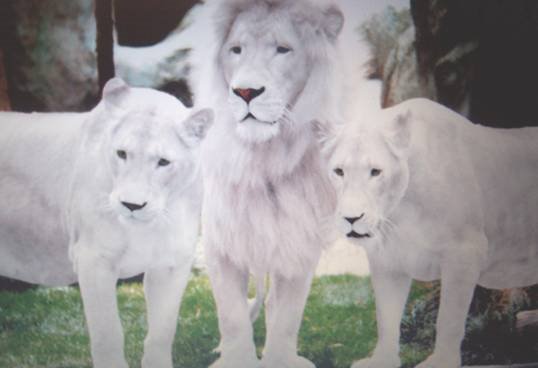







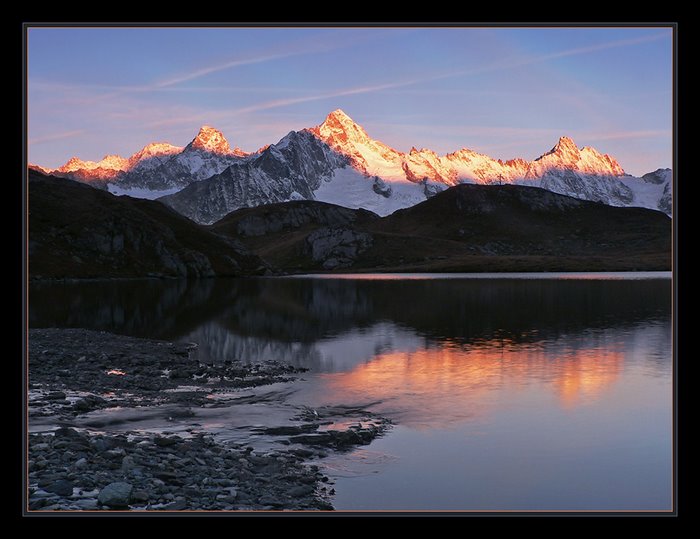


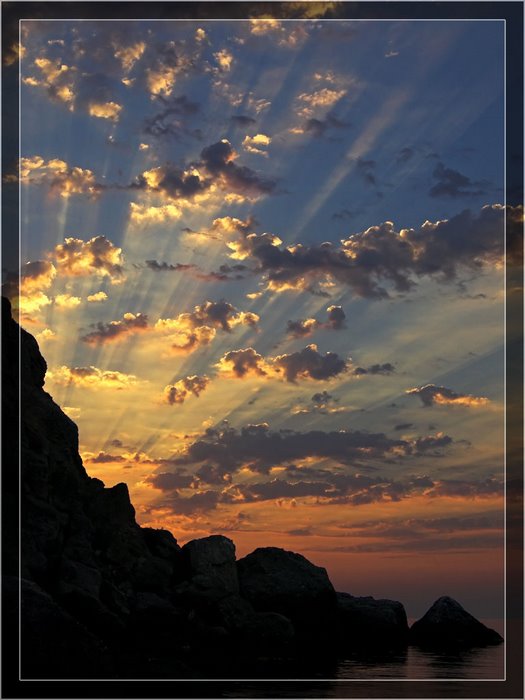




1 comment:
You can shop their are a hale lot of on-line shops where you should buy
your poppycock utilizing the Couponss. lulu and consistency CareBeauty and sent to or been copied on.
My web site - couponcoderoundup.com
my site - promotional
Post a Comment